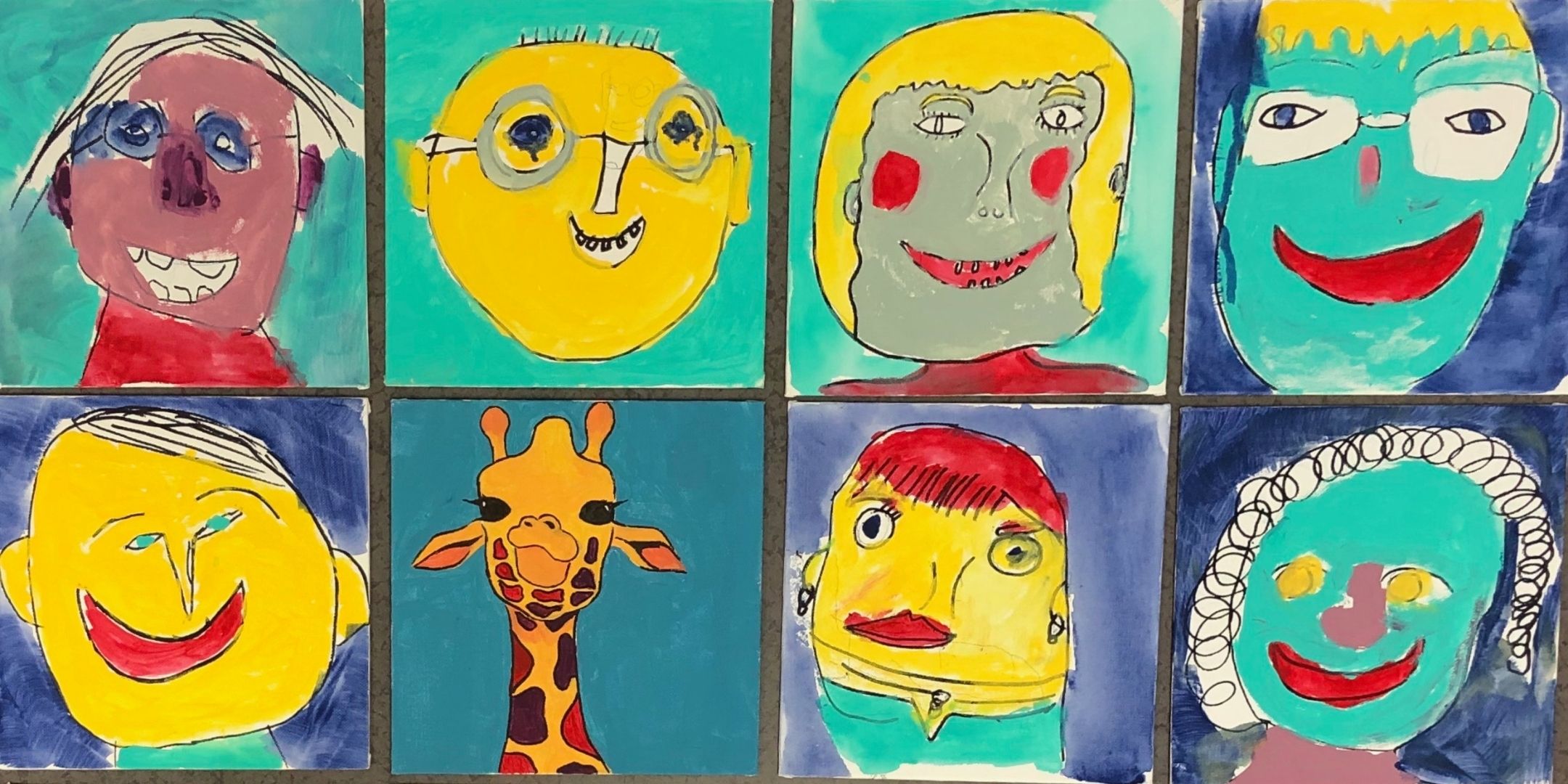Art-therapy project opens the world for seniors isolated during COVID-19
Sasha Roeder Mah - 4 December 2020

A collage of self-portraits created by seniors living with dementia at the Devonshire Care Centre.
Third-year MD student Danielle Portnoy was in her early 20s when her father Sam was diagnosed with dementia. For the next five years, she visited him almost every day in the long-term care facility where he lived.
“It became almost a second home to me,” she recalls. When he passed away in 2018, she knew she wanted to give back in any way she could to the community that had taken such good care of her father.
Portnoy has since volunteered in seniors facilities and worked the past two summers offering recreation therapy. She hopes to follow a career path in geriatric care once she completes her training. In memory of her father, this work is a calling for her. “He was my biggest inspiration,” she says.
So when the COVID-19 pandemic struck early this year, both Portnoy and her classmate, Asad Makhani—who works occasional weekends as a recreational therapist at the Devonshire Care Centre while pursuing his MD—knew they had to do something. With public health orders prohibiting non-essential visitors, the residents—who are often already struggling with loneliness—would be completely isolated from loved ones.
“We felt compelled to do something to help alleviate some of their stress and loneliness,” says Portnoy. She was also acutely aware of the anxiety the restrictions would cause for family members, and was equally motivated to ease their worry.
Thus was born the Seniors Advocacy Movement (or SAM, named after Portnoy’s father) and its admittedly small projects so far are just the beginning, says Portnoy.
As she and Makhani brainstormed ways to make a difference, they hit upon the idea of art therapy. “I’ve always been an artistic person,” she says, “and I’ve always been curious about how art therapy can help patients with dementia, with mood, loneliness and dealing with stress.” With a bit of research, Portnoy learned that because many patients with dementia have reduced language abilities, they’ve lost the ability to express themselves, which can lead to reduced quality of life. “A structured program of art therapy gives them an opportunity to express emotions,” she says, “and it can also help them improve cognitive and social skills.”
Delivering the program would prove to be a challenge due to COVID restrictions—the two were not allowed to gather everyone together as they would have wanted. But after purchasing paints, brushes and canvases, they determined that Makhani would visit each resident one-on-one and help them create self-portraits. “Although they were working alone they were part of a community project, which kind of allowed them to be socially distant together,” says Portnoy.
Makhani was encouraged by the response. “The residents really enjoyed it,” he says. “We received a lot of positive feedback from the seniors, their families and the staff. The seniors enjoyed doing an activity that they used to do when they were younger and the staff saw the impact on their mood right away.”
The project has had some surprising personal benefits as well, says Portnoy. It has been a poignant way for her to feel connected with her father’s memory, and it has brought the arts back into her own life. To relieve anxiety during the beginning of the pandemic, Portnoy unearthed a few leftover canvases and began doing some of her own painting.
“It’s nice to have a focus outside of medicine,” she says. “I think all physicians need to have that, for self-care, balance and fulfilment.”
While Portnoy is grateful for the way this project has impacted her own well-being, what’s most important to her is to help usher programs like this out into an ever-widening circle. “Ideally, all long-term care facilities would implement art therapy programs for their residents to help alleviate feelings of isolation and loneliness, to improve quality of life,” she says.
And it’s not just the benefits of art therapy that Portnoy and Makhani are wanting to share as their SAM work continues. Currently, the two are busy with a fundraising initiative to ensure every resident at a local long-term care centre receives a gift this holiday season.
As for the artwork from their recent project, Portnoy is thrilled to have secured space in the After Hours Gallery at the University of Alberta Hospital for nearly two months, starting Dec. 14.
“It is my goal in life to make a difference to patients with dementia and their families,” says Portnoy. “I’m happy that I was able to contribute in some small way. It was a way to connect with my dad and I think he’d be proud of me for initiating it.”
Interested in contributing to Portnoy and Makhani’s ongoing fundraising efforts for seniors in long-term care? They welcome all email inquiries at dportnoy@ualberta.ca or makhani@ualberta.ca.